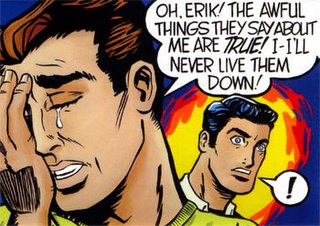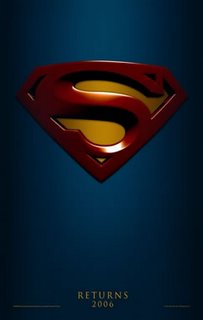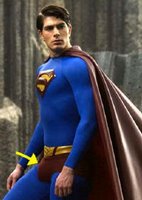 here's the first opinion i stumbled on for the best films of 2005...
here's the first opinion i stumbled on for the best films of 2005...for the most part i would agree. and if the "we saved the best for last" motto is true, then the nod for brokeback comes as no surprise. i think america has embraced the film with some caution and takes comfort knowing in-advance, that the two cowboys don't end up leaving their wives for one another. i hope to live to see the day when hollywood delivers a huge film where two gay characters are the focus and that they end up remaining together, with a healthy relationship and a family.
yes breaders, we do have them just like you although those in power would like to present us as disfunctional and or standing behind "your god" spewing "he wouldn't approve". therefore, instilling further ideas of false strength, longevity and superiority for heterosexual relationships. since their isn't an idiots guide to relationships for either side, we all jump in with the best intentions. as long as the heteros are in control we wont have the opportunity to marry and raise a family and prove that we are just as capable as anyone else. with this in mind it's so easy for "them" to say "look, they can't make it work" then sit back and fuck up their own relationship. i'm stepping of my soapbox so we can get to the nods...
The best of the best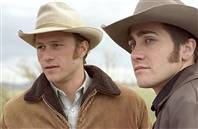
Which brings us to the subject of 10-best lists. In alphabetical order, here are my picks for 2005:
“Brokeback Mountain” (directed by Ang Lee). Annie Proulx’s wrenching 1997 New Yorker story, about two men who carry on a secret affair over a couple of decades, could easily have been turned into a snicker-inviting blunder. Miraculously, the movie seems to have inspired everyone involved, and especially Heath Ledger and Jake Gyllenhaal as the lovers who will not label what they feel.
“Brothers” (Susanne Bier). A devastating Danish film about a career soldier and family man who is shipped off to Afghanistan, where he is captured and forced into an impossible “Sophie’s Choice” situation with another prisoner. Connie Nielsen stands out as the wife who thinks he’s dead and is tempted to start a new life with his troubled brother.
“Capote” (Bennett Miller). Dominated by Philip Seymour Hoffman’s uncanny impersonation of Truman Capote, this is an accomplished film on every level. Dan Futterman’s script carefully sets up the series of relationships that made Capote’s unlikely authorship of “In Cold Blood” possible. Miller’s direction, especially his handling of a near-perfect supporting cast, makes them credible.
“The Constant Gardener” (Fernando Meirelles). The Brazilian Meirelles, who earned a surprise Oscar nomination a couple of years ago for directing “City of God,” makes the leap to mainstream movies with this confident, provocative adaptation of John le Carre’s best-seller about a politically motivated murder. Ralph Fiennes was born to play the title character, an ineffectual British diplomat with an activist wife (the surprisingly excellent Rachel Weisz).
“Good Night, and Good Luck.” (George Clooney). Clooney made an impressive directing debut three years ago with “Confesssions of a Dangerous Mind,” but he’s gone on to another level with this instant classic about Edward R. Murrow’s mid-1950s television showdown with Sen. Joe McCarthy. David Strathairn and Frank Langella are the standouts in a splendid cast.
“A History of Violence” (David Cronenberg). The Canadian director demonstrates his mastery with this story of a seemingly normal family whose lives are turned around when the father reveals his true nature — by committing what appears to be a heroic act. The sense of dread is palpable, thanks in large part to Viggo Mortensen’s assured performance in the central role.
“King Kong” (Peter Jackson). New Zealand’s most famous director scores another fantasy home-run with this magnificent three-hour-plus remake of (and homage to) the 1933 classic about a giant ape, his captive girlfriend and their disastrous visit to the land of skyscrapers. Perhaps no other film this year has so enthusiastically suggested a passion for movies and an appreciation of their history.
“Lord of War” (Andrew Niccol). Another gifted New Zealander wrote and directed this scathing satire starring Nicolas Cage as a gun-runner who makes a fortune selling Cold War weapons to homicidal dictators. As he acquires a trophy wife, misleads his conscientious brother and competes with a more seasoned dealer, Cage brings a cranky deadpan flair to an almost hopelessly amoral character.
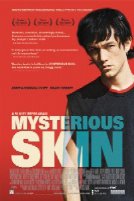 “Mysterious Skin” (Gregg Araki). Araki’s eighth and strongest film is the most unsettling and memorable of the recent movies about child abuse. After a Little League coach molests them, two damaged boys grow up to lead entirely separate lives: one of them entrenched in comforting fantasy, the other acting out his frustrations through a dangerous street life.
“Mysterious Skin” (Gregg Araki). Araki’s eighth and strongest film is the most unsettling and memorable of the recent movies about child abuse. After a Little League coach molests them, two damaged boys grow up to lead entirely separate lives: one of them entrenched in comforting fantasy, the other acting out his frustrations through a dangerous street life.
“The Squid and the Whale” (Noah Baumbach). Who’d have guessed that a movie about a messy divorce could be so funny? Jeff Daniels delivers a career-best performance as a pompous writer, father and husband who can’t help putting his foot in his mouth. Laura Linney continues to astonish as the fed-up wife who sees a way out and takes it.
A second 10: “Broken Flowers,” “Crash,” “Downfall,” “Grizzly Man,” “Keane,” “Look at Me,” “Munich,” “Paradise Now,” “The Three Burials of Melquiades Estrada,” “3-Iron.”
By John Hartl

